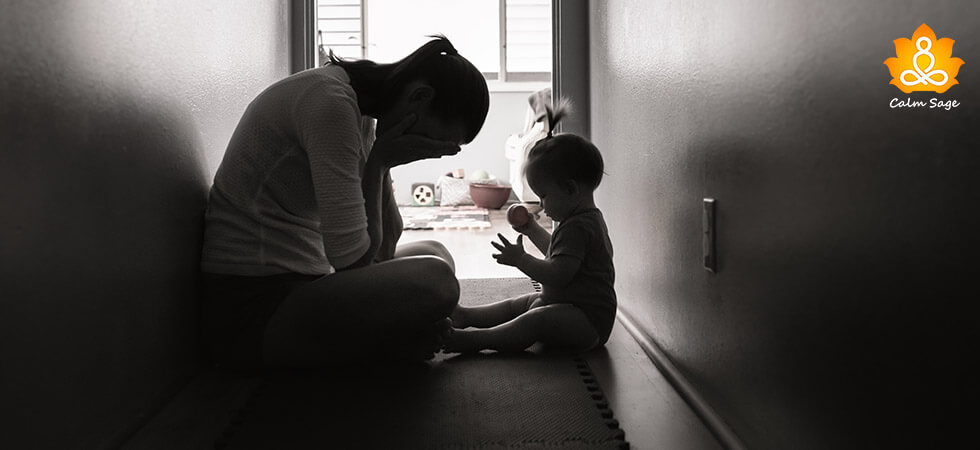Raised By A Narcissistic Parent? Identify The Signs, Its Effects, And How To Heal From The Trauma

One of the purest relationships in the world, the bond between a parent and child, is unbreakable. Parents are the first with whom we form attachments and parents are with whom we fight the most – especially during our teenage years.
Unfortunately for some people, who are raised by narcissistic parents, the drama in a parent-child relationship can have a more profound implication than others.
People who struggle with Narcissistic Personality Disorder (NPD), often show symptoms such as having a sense of entitlement, need for attention, a lack of empathy, a sense of superiority, and more.
If these few symptoms sound familiar to you and what you experienced in your childhood, then there’s a high chance that you were raised by a narcissist.
Is Your Parent A Narcissist?
A narcissistic parent is very possessive of their child and may feel intimidated by their child’s independence. Kids of narcissistic parents experience embarrassment, shame, and often grow up with poor self-esteem.
For narcissistic parents, personal boundaries are a problem and their own needs matter more to them than their family members. To meet their parents’ needs, a child learns to become the perfect image their narcissist parents want.
And if the child fails to fulfill their need, then their narcissist parent may respond with emotional manipulation, neglect, and even withdraw affection.
Because of such behaviors, a child may have some unresolved trauma and if you can relate with some of the above, then you might be raised by narcissistic parents.
Signs Of A Narcissistic Parent
Below are some common red flags and signs of a narcissistic parent:
- They constantly need to be the center of every conversation
- They often display ignorant and selfish behavior
- They brag about your achievements but rarely accept you emotionally
- They blame others (and you) for their problems
- They act well-behaved in front of others but are controlling in private
- They make you feel bad if you don’t do what they asked immediately
- They make you feel guilty by bragging about how much they have given for you
- They are very opinionated at home but placating in front of others
- They are brutal and intolerant and do everything to be on the top
- They make you feel anxious and often diminish your confidence
- They are almost always absent from your life
- They make you commit to activities, despite your choices
- They fail to provide emotional support in their relationship with you
- They use you to achieve personal goals
- They are bothered when you ask for time and attention
- They make excuses to avoid spending time with you
- They have sudden mood changes, including sudden volatile anger
- They often play the victim
- They are quick to dismiss your emotions
- They become jealous if you get more attention than them
- They often impose their way in your life
How Narcissistic Abuse From Parents Affect You?
Being raised by a narcissist can severely affect your mental and emotional health. In front of others, narcissistic parents are the perfect, loving parents but in private, these parents control and manipulate their child’s every step. They explode with anger and always criticize their child.
Here’s how being raised by a narcissistic can affect your overall health and wellbeing:
1. Gaslighting
Gaslighting is a type of psychological manipulation where a person (in this case a narcissistic parent) plants doubt in another person (in this case, their child), making them question their judgment. Growing up with a narcissistic can leave you feeling like you have very little to offer as growing up your skills were often downplayed.
Also Read: Impostor Syndrome Characteristics & Coping Strategies
2. Attachment Issues
Children of a narcissist are likely to develop unhealthy attachment issues. The constant emotional neglect, emotional manipulation, and absence of a parent can leave a child questioning their safety. This can cause children to either develop trust issues in the future or cause clinginess towards their partner.
3. Ignoring Their Needs
When being raised by a narcissist, a child’s needs are often ignored, and growing up the child realizes that their goals and needs are not important. Their focus is always on pleasing their parents and living up to their unrealistic expectations. Hence, they may ignore their needs to stay in their parents’ good graces.
4. Self-Blame
It doesn’t matter if the narcissistic parent is abusive to their child or not, as they are mostly emotionally unavailable to them. To make their parents happy and satisfied, the child may avoid blaming their parents and instead take the blame on themselves. This behavior may continue into adulthood as well.
5. Echoism
Narcissistic parents often react with anger and are prone to emotional outbursts without prior warning. This kind of behavior can make children of narcissistic parent(s) take up little space to avoid triggering their parents’ emotional outbursts (at the same time, they fear taking attention away from their narcissistic parents).
In simple words, it may feel like walking in a minefield and trying to avoid an emotional outburst from their parents.
6. People Pleasing
If you’re raised by a narcissist then you may feel the strong urge or need to please others. This often happens when a child is left with no space to think for and about themselves in the first place. Or in some cases, a child was made to feel guilty about their actions by their narcissistic parent(s).
How To Heal From Being Raised By A Narcissist?
Confronting a narcissistic parent may not be a choice but there are ways you can heal from the trauma if you grew up with a narcissistic parent.
1. Understand More About Narcissism
To heal, you need to understand how narcissism affects one’s life. The more you understand about narcissism and narcissistic personality disorder, the more you’ll understand that nothing is your fault nor your parents. It’s just the way it is. The more you understand, the more you’ll heal.
2. Set Healthy Boundaries
Narcissistic parent(s) don’t respect boundaries so with the help of a therapist you can work on setting healthy boundaries. This process may take time but take one step at a time and while you will experience resistance from your narcissistic parent(s), continue to stand your ground and be clear about your boundaries.
3. Let Go
Changing a narcissist is quite challenging and even more so when they are your parent(s). Narcissists won’t change unless they wish to. In such a case, you need to accept the hard truth and let go of the hurt they cause. If needed, you need to accept their behavior and walk away.
4. Be Self-Compassionate
Being raised by a narcissist isn’t easy and with a difficult upbringing, you may lack self-compassion. Whether you like it or not, being raised by a narcissist is still an abusive and traumatic experience. So be patient and compassionate with yourself. Take your time and put your needs first for once.
5. Ask Support From Your Support System
If you grew up with a narcissistic parent, then you may find it hard to validate your child’s feelings or even yours at times. Seeking help from your support system may help. Joining support groups with people who’ve had a similar childhood can benefit you the most.
6. Seek Professional Help
If you’re raised by a narcissistic, then healing and dealing with your parent may sound traumatic and challenging. With the right help and support, you can work through the narcissistic abuse from parents. A therapist can help you understand your feelings, build effective tools, and learn how to set boundaries.
If your loved one has been raised by a narcissist and if they are struggling with how to deal with their parents, you can help your loved one by:
- Avoid blaming them. Remember they are the victim and need your support
- Being empathetic and listening to their story without forming judgments
- Validating their feelings and emotions
- Helping them by creating a safe space for them to share their feelings
- Being patient with them during their recovering and healing
Escaping the clutches of a narcissistic parent is not easy and can be very challenging for your mental and emotional health. But always remember, you are not alone in your challenges. You can always find help and support by reaching out to your loved ones or even a mental health professional.
Book Your Free Session with BetterHelp
Asking and reaching out for help you need can make a difference when it comes to your mental and emotional health.
If you’d like to connect with a professional therapist or counselor, you can sign up with BetterHelp below or write to us at info@calmsage.com.
Let us know if you find the above signs of being raised by a narcissist relatable. You can share your thoughts in the comments below.
Take Care.





















Every thing said in these articles of such narcissist is so so very true i was raised by a narcissist mother